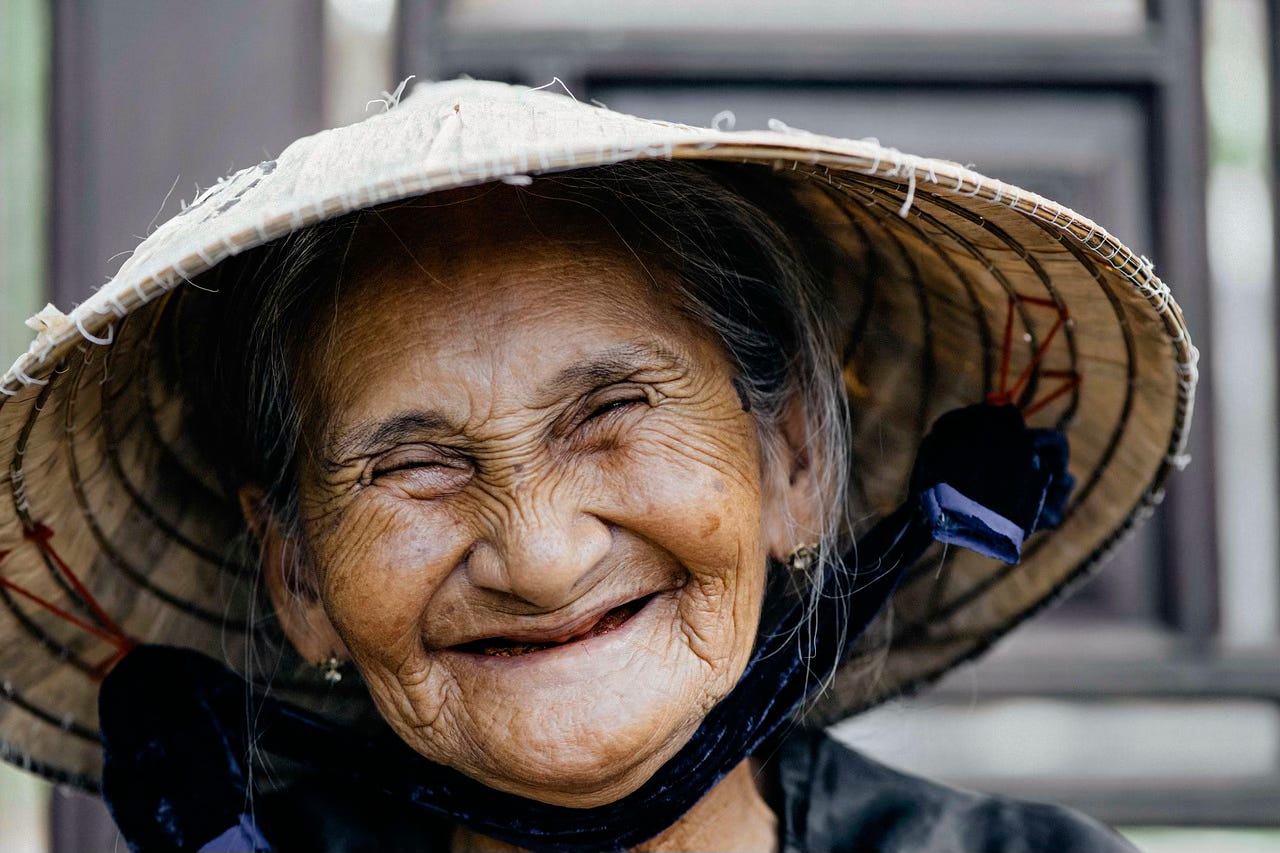In conversation with a group of new friends, one woman recalled a workshop she attended some years ago. There she learned three tasks of an elder.
The first took me by surprise: laughter. It seems part of our job is to lighten the load, to hold joy, and to bring delight to the world. I had thought that wisdom would be our most prized gift to others—not advice, wisdom. The task would be to share our experience, our learning, and our love. But laughter?
As I sat with the idea of the task of laughter, tears welled up. Were they tears of joy or sadness? There is so much pain in the world, it seems counter-intuitive to create laughter. After recognising that there is little I can do about the pain in the world, I might as well create joy where I can. It’s possible that the joy energy reaches farther than I, as an individual, can.
As I sat with the idea of laughter I remembered a moment at the last in-person conference held by Sage-ing International. Matthew Fox was an honoured speaker. He introduced us to his reframing of ‘retirement’. He named it “re-firement”. All 300+ of us burst into gales of laughter. He will be my role model for stepping into joy as a valued task of my elderhood.
The second task was more familiar, though stated in a way new to me: become the living prayer of your choice. Wow! That one reached my heart in a nano-second, though my mind had to contemplate about what ‘the living prayer’ of my choice actually might be. How would I live as a ‘living prayer’? Would I go through my days with a different consciousness, a deeper awareness? Would daily commitments be held more lightly?
And then, of course, there arises the question of prayer itself. What is it exactly? Do we beseech an old white man sitting on a cloud to take the ache from our joints? Do we wander in the woods, listening? Do we use a mala or a rosary to recite well-remembered words? Do we count our breaths?
Or is my prayer the simple act of ageing with deeper consciousness of eldering? Once I’m clear about what my prayer is, I can step into living it.
The third task is a familiar one to me: Be, speak and act for the next 7 generations. This task comes to us from the Great Law of the Iroquois Confederacy. It tells us that “In our every deliberation, we must consider the impact of our decisions on the next seven generations.”
The first task sets the stage for the remaining two. The three tasks together open the world of the elder to action as well as contemplation. Bringing good humour to our sometimes overwhelming decisions might make the process easier. To consider each action and its impact has the potential to stymie us, paralyse us. Laughter helps us to recognise our humanity, our fallibility. The joy created by laughter reminds us to be kind to ourselves as well as to those that follow us. And, in the words of the Dalai Lama, “Kindness is my religion.”
The second and third tasks easily support each other. By living with awareness, prayerfully, I would naturally consider the impact of my actions. Seven generations would be: children, grandchildren, great grandchildren, gg grandchildren, ggg grandchildren, gggg grandchildren, ggggg grandchildren. That’s 140 to 210 years from now, from each now for the rest of our lives. It is impossible to imagine, though worth the attempt.
A vision without a task is a dream.
A task without a vision is drudgery.
A vision with a task is the hope of the world.
~~carving found in a church in Sussex, England, c.1730


